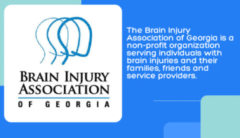I didn’t drink in excess, or smoke, or have diabetes, or have high cholesterol, or high blood pressure, or obesity, the main reasons why people have a stroke. I’ll get to the point, eventually. But first, some background.
Congenital Protein C or S deficiency is an inherited disorder. This means it is passed down through families. Congenital means it is present at birth.
The disorder causes abnormal blood clotting. One in 300 people has one normal gene and one faulty gene for protein C deficiency. Protein S deficiency is much less common and occurs in about 1 in 20,000 people. But overall, it’s frequent, considering there are about 330 million in the US alone.
If you have this condition, either deficiencies of S and C, you are more likely to develop blood clots. The symptoms are the same as for deep vein thrombosis (DVT) and include:
Pain or tenderness in the affected area
Redness or swelling in the affected area
Medscape’s Mohammad Muhsin Chisti, MD, says, “Protein S is a vitamin K–dependent anticoagulant protein that was first discovered in Seattle, Washington, in 1979 and arbitrarily named after that city. The major function of protein S is as a cofactor to facilitate the action of activated protein C.
“Protein S deficiency may be hereditary or acquired; the latter is usually due to hepatic disease or a vitamin K deficiency. Protein S deficiency usually manifests clinically as venous thromboembolism (VTE).” Stroke, in other words.
The National Institutes for Health (NIH) says, “Protein S functions as a cofactor of activated Protein C. Its deficiency is a rare condition and can lead to deep vein thrombosis, pulmonary embolism or stroke. Protein S deficiency manifests as an autosomal dominant trait.” [Explanation needed: To have an autosomal recessive disorder, you inherit two mutated genes, one from each parent. These disorders are usually passed on by two carriers.]
But the good news is there’s a test for Protein S and C deficiencies, and who wouldn’t want to know! A family member who shall remain nameless heard of my research into Protein S and C deficiencies, but he allowed the doctor to talk him out of it like the ostrich-head-in-the-sand approach.
If you really knew of those Protein S and C deficiencies, wouldn’t you change your lifestyle a bit, like cut out all the causes mentioned in the very first paragraph?



